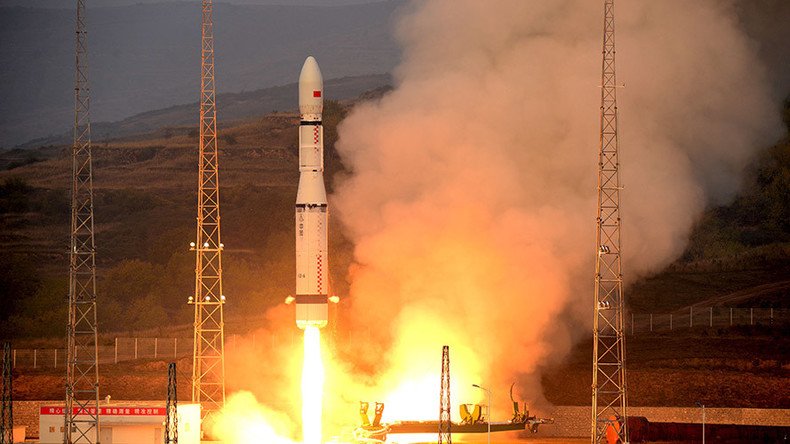Mysterious dark matter to be explored by newly-launched Chinese satellite

China has launched its first space telescope that will look for signs of dark matter, a type of substance invisible to the naked eye but hypothetically constituting the whole universe’s mass.
The Dark Matter Particle Explorer (DAMPE), the first of China’s four planned missions, blasted off a launch pad at the Jiuquan Satellite Launch Center in the Gobi desert on Thursday.
Liftoff of China's Dark Material Particle Explorer (DAMPE) today @ 00:12 UTC from Jiuquan on an LM-2D rocket: pic.twitter.com/mxNc8LXRO5
— Cosmic Penguin (@Cosmic_Penguin) December 17, 2015The satellite, nicknamed “Wukong” after a character from Chinese legend, is going to keep track of the direction, energy and electric charge of particles in space. Scientists believe that from space it will be easier for the instruments to detect something that may subsequently help them crack the mystery that surrounds dark matter.
“This is an exciting mission. If dark matter annihilates, as some theories predict, DAMPE has an opportunity to detect dark matter annihilation products,” David Spergel, a theoretical astrophysicist from Princeton University, said, according to Science magazine.
“This is like tracking down the ‘son’ of dark matter – if you cannot find the father, you go to the son and you could learn about at least some properties of his father,” Chang Jin, leader of the project, was quoted as saying by The Hindu.
The satellite is due to spend at least three years orbiting Earth, but designers hope that it could last five, Xinhua news agency reported.
China’s space device is equipped with the widest observation spectrum and highest energy resolution of any dark-matter probe in the world, according to Chang Jin.
“Exploration of dark matter could… give us a clearer idea about the past and future of galaxies and the universe, and will be revolutionary for the world of physics and space science,” he added.
The idea of dark matter that doesn’t emit or reflect enough electromagnetic radiation to be detected originated when scientists failed to explain missing mass and distorted light in other galaxies. The theory is widely accepted in physics community but has never been proved.












